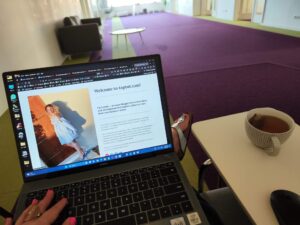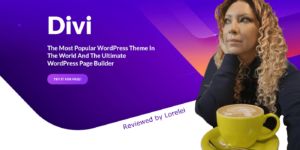It can be daunting for a school marketing team to fully understand search engine optimisation (SEO). There are so many aspects which means it’s easy to get overwhelmed. However, SEO for private schools is an essential part of any marketing strategy that can’t be ignored. By understanding some of the fundamentals you can take on each part of SEO one step at a time to build a strong online presence for your school.Contentshide 1 Page optimisation 2 Keywords 3 Page title 4 Meta Titles and Description 5 Targeted blog content 6 Inbound links 7 Social media 8 No school should be without SEO 8.1 Share this:
We’ve put together some reasons why you need to incorporate SEO strategies into your school’s digital marketing and teach you some of the basics to boot!
Page optimisation
Any page on your school’s website needs to be optimised for search engines like Google, Bing, Yahoo to ensure they rank well in the search results pages (SERPs). This is on-page SEO where you edit elements on a page itself. For example, you have a landing page for open day information and want to get it right in front of prospective students and their parents. Optimising a page increases the chances of ranking high in the SERPs for a query like ‘open days near me’. You need to focus on the following key areas to optimise the page and reach your target audience.
Keywords
This is maybe the most important part of your page as a keyword will tell search engines what your page is about so it can appear in relevant SERPs. You need to research the kinds of keywords students and parents are looking for. In our open day page example, your target keyword could be something as simple as ‘open days’ or a variation like ‘open days near me’ or ‘open days 2021’. Use online tools like the Google Keyword Planner or Semrush’s Keyword Magic Tool to see what users are searching for and how often they’re searched for on a monthly basis.
Page title
Your page title (also called an H1) will need to include your target keyword and be something that catches the eye of your target audience. A title such as ‘Visit Us for our Open Days’ encourages students to take action and attend.
Meta Titles and Description
These elements are what a user will see when they enter a search query. Your target keyword should be included in the meta title. The lengths for both meta titles and descriptions can vary on pixel width but there’s an optimal character length for each.
The best Meta titles are no more than 55 characters, anything over might not be displayed.
A meta description is just a short description of your page that displays on your search result. It’s limited to only 155 characters so be sure to sum up your page in just two snappy and attention-grabbing sentences.
Targeted blog content
Creating blog content that’s relevant to your audience is another way of boosting your SEO and drawing more attention to your school. Any marketing team will already have audience personas for other marketing purposes and those can be used and refined for this kind of content. The personas should be focused on categories like prospective students and parents and what their backgrounds, personalities, goals and budgets are.
A good example of content aimed at prospective students is something like ‘How to Prepare For Your First Day’. A blog idea like this allows you to cover topics that are relevant to your target audience and tap into more niche informational searches. You’ll need to do the same kind of keyword research you do for standard landing pages where you’ll need a target keyword and related keywords to pepper in the text. Above all else, your blog content needs to be great! Stuffing your content full of keywords is something Google frowns upon so make sure your content suits your target audience.
Inbound links
You can also build inbound links throughout pages on your website. This is where you link to other relevant pages on your site. Inbound links are made up of two parts:
- The anchor text
- A link to your target page
The anchor text is highlighted and clickable and should read well when incorporated into the text naturally. Inbound links are essential for SEO for private schools as they help build credibility and trust. They also flag up the importance of your page to search engines so make sure you have some inbound links so you can rank high.
Social media
Social media is a huge platform where you can foster your community of students and teachers you already have as well as reach out to others. Having an official school account on every major social media platform is a lot like being represented in a directory. As social media accounts appear in SERPs, plenty of students and parents research what schools they’re interested in attending through their social media accounts.
The kind of content you post on social media should broadcast your message and values. What makes your school unique? What courses do you offer? What is student life like? Social media can be a visual and all-encompassing representation of your school. Plus it’s a great place to link to your landing pages and blog content.
No school should be without SEO
Any school that isn’t incorporating SEO into their marketing strategy is going to be far behind its competition. Once you have the fundamentals under your belt then climbing up the SERPs won’t be as much of an intimidating task. Once the results are in, you’ll see why SEO for schools needs to be implemented ASAP.
Author Bio: James Sayers has a passion for writing on media such as music, film and video games. He works at Tillison Consulting as an SEO Campaign Manager working on blog content and SEO improvements for clients.
Data analytics expert. As an analyst and project manager, I have proven to be a strong leader and team player in maintaining a suitable workspace for workers and industries in the oil and gas sector.
By taking into account various factors, with the assistance of state of the art technologies and the utilization of Big Data Analytics.
This includes considering various aspects like volume, velocity, variety, veracity, value together with complexity.
With the recent advent of data recording sensors in exploration, drilling, and production operations, oil and gas industry has become a massive data intensive industry.






